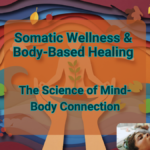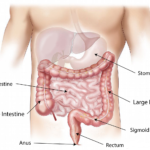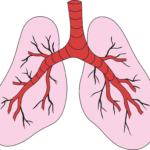In addition to the activities mentioned in the 10-day cardiac rehabilitation retreat program, some programs also incorporate Ayurvedic Panchakarma procedures. Panchakarma, a detoxification and rejuvenation procedure, is designed to remove toxins from the body, balance the doshas, and promote overall health and well-being. Here’s how a 10-day cardiac rehabilitation retreat program incorporating Panchakarma might look like:
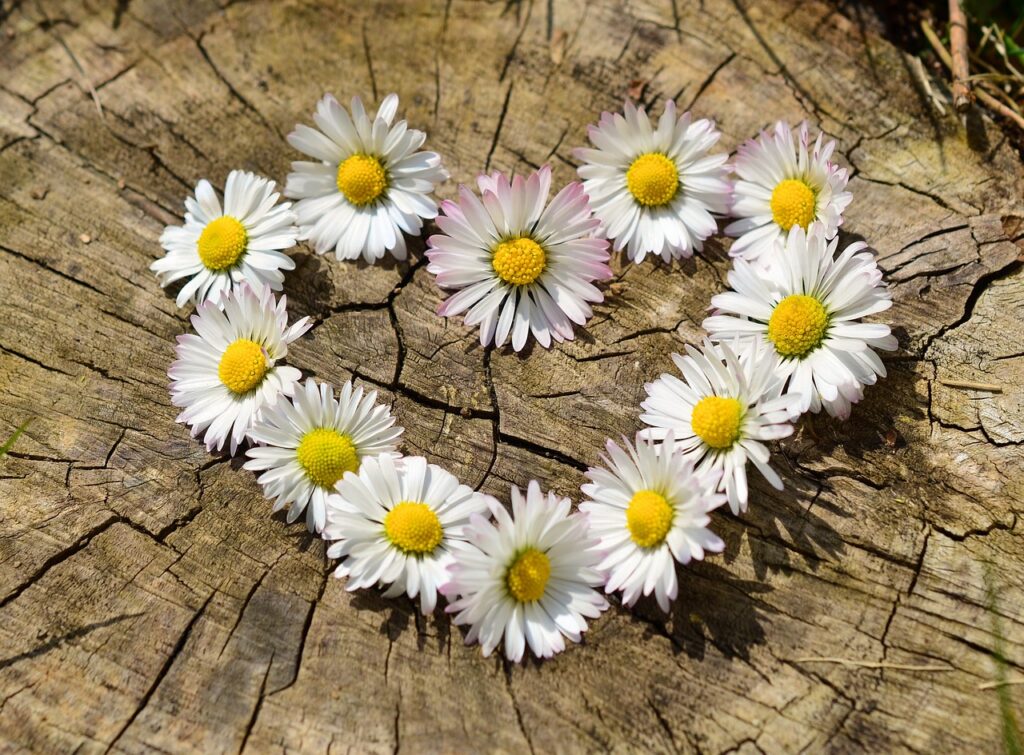
Arrival and Orientation
Upon arrival, the program coordinators will welcome participants and provide an orientation of the retreat center. This includes a tour of the facilities and a review of the daily schedule. Participants will also undergo a comprehensive medical assessment to determine their baseline fitness level and identify any medical concerns.
Exercise and Fitness Testing
The second day will focus on exercise and fitness testing. Based on their medical assessment and fitness goals, the participants will receive a personalized exercise program. They will also undergo a range of fitness tests, including aerobic capacity, strength, and flexibility assessments.
Nutritional Counselling and Ayurvedic Consultation
Participants will meet with a registered dietitian to learn about healthy eating habits and develop a personalised meal plan that meets their dietary needs and goals. They will also have an Ayurvedic consultation to determine their dosha type and identify any imbalances.
Abhyanga and Swedana
Participants will begin their Panchakarma treatments. They will receive a full-body Ayurvedic massage known as Abhyanga, followed by a herbal steam treatment known as Swedana. These treatments help to loosen toxins and prepare the body for elimination.added More procedure like Gandush, Kaval, Nasya, Anjan, Shirodhara.
Cultural Programmes
Including a cultural program as part of the cardiac rehab retreat program can provide an opportunity for participants to immerse themselves in the local culture and traditions of the area. Here are some ideas for cultural activities to include in the program:
- Music and dance performances showcasing the local culture and traditions of Nashik and Maharashtra.
- Visits to historical and cultural landmarks such as temples, museums, and other cultural institutions.
- Workshops on traditional arts and crafts such as pottery, painting, and weaving.
Basti and Nasya
Nasya and Basti, two additional Panchakarma procedures. Basti involves the use of medicated enemas to cleanse the colon, while Nasya involves the administration of herbal oils and powders through the nasal passages. These procedures help to eliminate toxins and balance the doshas.
Group Counselling and Rest
Participants will attend a group counselling session with a licensed counsellor. This session will provide a supportive environment for participants to discuss their experiences, challenges, and successes during the program. The remainder of the day will be spent in rest and relaxation.
Shirodhara and Rest
Participants will receive Shirodhara, a relaxing Ayurvedic treatment that involves the pouring of warm herbal oil over the forehead. This treatment helps to calm the mind, reduce stress and promote relaxation. Participants will spend the remainder of the day in rest and relaxation.
Panchakarma Procedures and Yoga
Participants will continue with their Panchakarma procedures. They will also have the opportunity to participate in a gentle yoga class designed for cardiac rehabilitation patients.
Investgations
That’s a great addition to the cardiac rehab retreat program. Investigating the participants’ cardiac profile and blood reports can help the experts understand their current health status and customize the program accordingly. Here are some details on conducting this investigation:
- Before the program begins, participants will be asked to undergo a series of medical tests, including a lipid profile, blood glucose level, blood pressure, and other relevant tests to assess their cardiovascular health.
- The results of these tests will be analyzed by the experts at the Panchamrut Ayurveda Research Center to determine the participant’s current health status.
- Based on the analysis, the experts will create personalized plans for each participant, including dietary recommendations, exercise plans, and lifestyle modifications to improve their cardiovascular health.
- Throughout the program, participants will have access to regular medical checkups to monitor their progress and make any necessary adjustments to their plan.
By investigating the participants’ cardiac profile and blood reports, the experts can provide a more comprehensive approach to the cardiac rehab program and help participants achieve optimal health outcomes.
Home Preparation and Discharge Planning
Preparing participants for a successful transition back home. This includes developing a personalised home exercise program, reviewing medications, and identifying community resources for continued support.
Graduation and Follow-up
On the final day, participants will graduate from the program and receive a certificate of completion. They will also have the opportunity to schedule follow-up appointments with their healthcare providers to ensure a smooth transition back to their daily lives.
Objectives
The objectives of the 10-day cardiac rehabilitation retreat program with Ayurvedic Panchakarma procedures are as follows:
- Improve Cardiovascular Health: The program aims to improve cardiovascular health by providing participants with a comprehensive rehabilitation plan that includes exercise, diet, and lifestyle modifications.
- Reduce the Risk of Future Cardiac Events: By addressing underlying health conditions and risk factors, the program seeks to reduce the risk of future cardiac events.
- Detoxify and Purify the Body: The Ayurvedic Panchakarma procedures incorporated in the program help to detoxify and purify the body, which can have a positive impact on overall health and well-being.
- Reduce Stress and Promote Relaxation: The program aims to reduce stress and promote relaxation through various stress-reducing techniques such as meditation, yoga, and Ayurvedic treatments.
- Improve Overall Health and Well-being: By providing personalised care that addresses each participant’s unique health needs and goals, the program seeks to improve overall health and well-being.
- Educate Participants on Healthy Lifestyle Habits: The program aims to educate participants on healthy lifestyle habits that can help them maintain their cardiovascular health and reduce the risk of future cardiac events.
Overall, the objectives of the 10-day cardiac rehabilitation retreat program with Ayurvedic Panchakarma procedures are to provide participants with a comprehensive rehabilitation plan that addresses their physical, emotional, and spiritual health needs, and helps them achieve optimal health and well-being.
Benefits
Incorporating Panchakarma procedures into a cardiac rehabilitation retreat program can provide additional benefits for participants. These procedures help to remove toxins from the body, balance the doshas, and promote overall health and well-being. With the help of experienced Ayurvedic practitioners and cardiac rehabilitation professionals, participants can successfully transition back to their daily lives with improved physical health
There are several benefits to incorporating Panchakarma procedures into a cardiac rehabilitation retreat program:
- Detoxification: Panchakarma procedures are designed to remove toxins from the body, which can have a positive impact on overall health and well-being.
- Balancing Doshas: Ayurveda believes that health is achieved when the three doshas (vata, pitta, and kapha) are in balance. Panchakarma procedures help to balance the doshas, which can improve overall health and reduce the risk of disease.
- Improved Cardiovascular Health: A cardiac rehabilitation program already focuses on improving cardiovascular health, and incorporating Panchakarma procedures can further enhance the benefits. These procedures can help to reduce inflammation, lower blood pressure, and improve circulation.
- Stress Reduction: Panchakarma procedures can have a calming and relaxing effect on the mind and body. This can help to reduce stress and promote overall well-being.
- Personalised Care: By incorporating Panchakarma procedures into a cardiac rehabilitation retreat program, participants can receive personalised care that addresses their unique health needs and goals. This can lead to better outcomes and a more successful transition back to daily life.
Overall, incorporating Panchakarma procedures into a cardiac rehabilitation retreat program can provide additional benefits and enhance the overall experience for participants. By addressing both physical and mental health needs, participants can improve their overall health and reduce the risk of future cardiac events.
Why Panchamrut Ayurveda Research Center Arranging This?
The Panchamrut Ayurveda Research Center arranging this 10-day cardiac rehabilitation retreat program with Ayurvedic Panchakarma procedures for several reasons:
- To Provide Holistic Care: As a centre dedicated to Ayurvedic medicine, the Panchamrut Ayurveda Research Center committed to providing holistic care to patients that addresses their physical, mental, and emotional health needs.
- To Promote Integrative Medicine: By combining Western medicine practices with Ayurvedic medicine practices, the centre seeking to promote integrative medicine and provide patients with a more comprehensive and personalised approach to healthcare.
- To Address the Growing Incidence of Cardiovascular Disease: Cardiovascular disease is a leading cause of death worldwide, and the Panchamrut Ayurveda Research Center seeking to address this growing public health concern by providing a cardiac rehabilitation program that incorporates Ayurvedic Panchakarma procedures.
- To Educate Patients on the Benefits of Ayurvedic Medicine: By offering a cardiac rehabilitation program that includes Ayurvedic Panchakarma procedures, the centre seeking to educate patients on the benefits of Ayurvedic medicine and promote its use as a complementary therapy.
Overall, the Panchamrut Ayurveda Research Center arranging this 10-day cardiac rehabilitation retreat program with Ayurvedic Panchakarma procedures to provide patients with a more comprehensive and personalised approach to healthcare, and to promote the use of Ayurvedic medicine as a complementary therapy for cardiovascular disease.
Programme schedule
The Ayurvedic Panchakarma procedures will be an integral part of the 10-day. cardiac rehabilitation retreat program scheduled from June 14, 2023, to June 24, 2023. This program will provide participants with a comprehensive rehabilitation plan that addresses their physical, mental, and emotional health needs. helps them achieve optimal health and well-being. For more information on the program, including registration details, please contact us
Our team would be happy to answer any questions you may have and provide you with further information on the program.

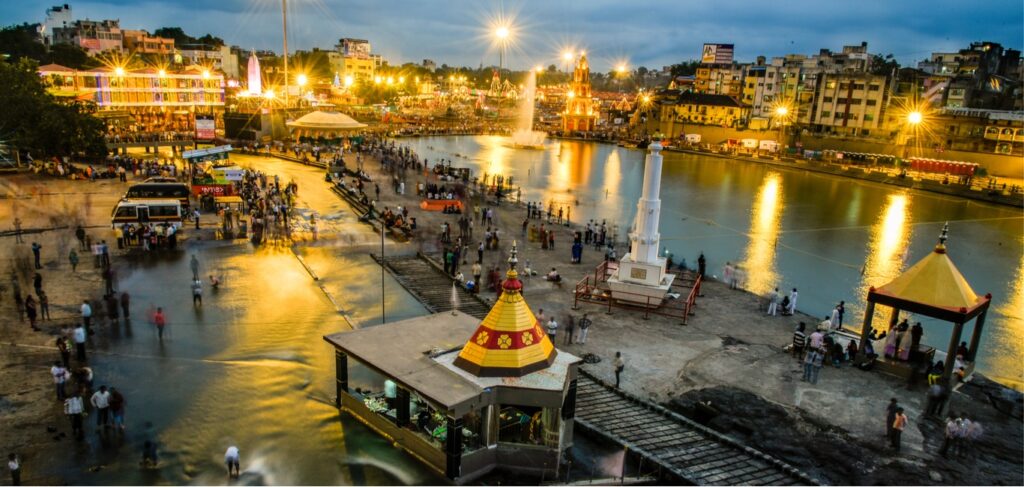

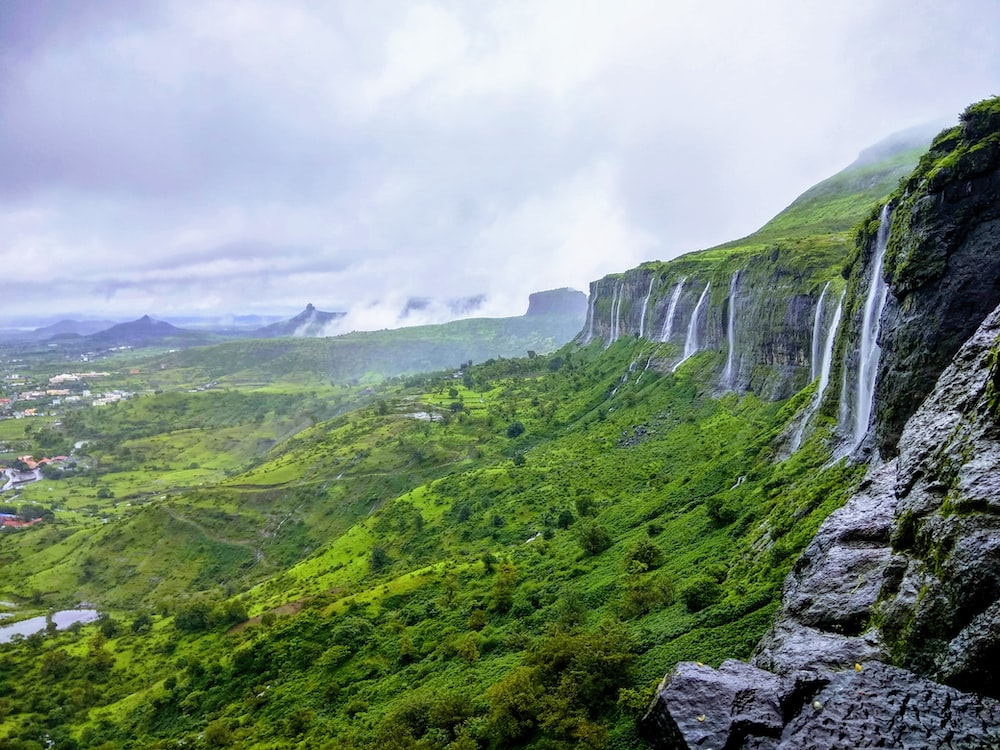
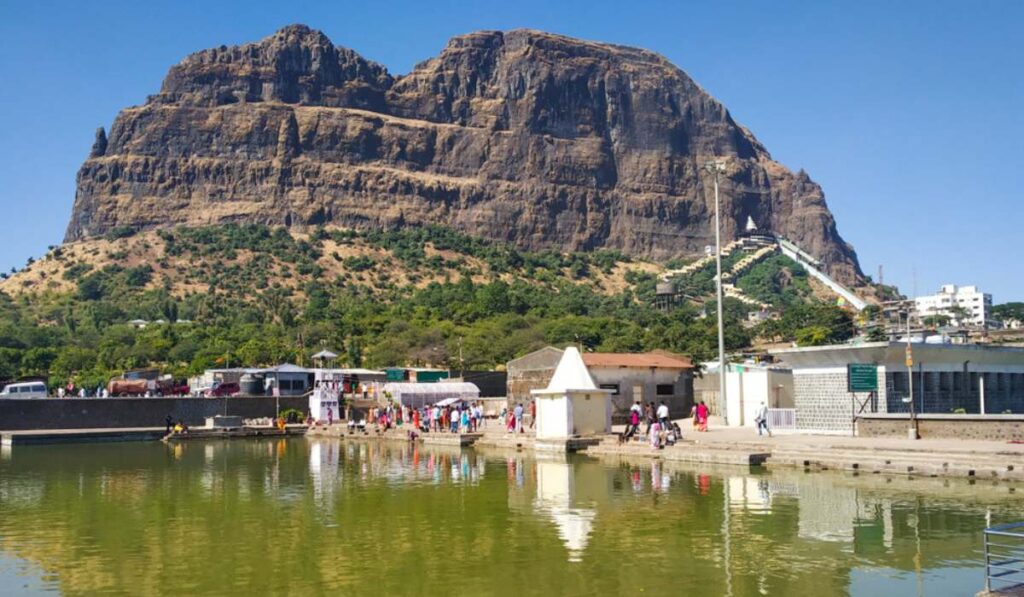
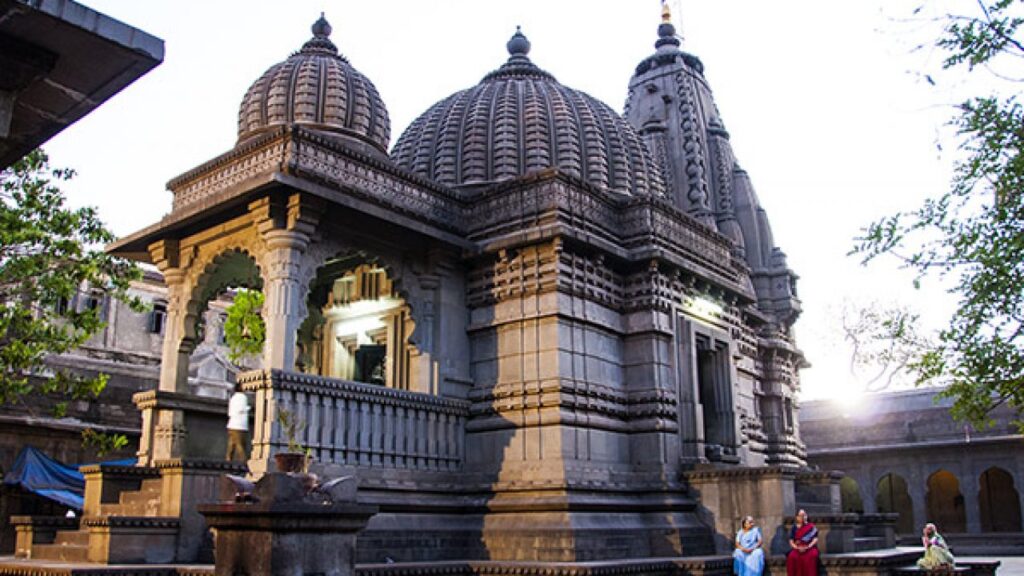
Where Is the Location?
It is great to hear that the 10-day cardiac rehabilitation retreat program with Ayurvedic Panchakarma procedures will be held in Nashik, Maharashtra, which is considered one of the most spiritual places in India. Nashik’s fame stems from its ancient temples, such as the Trimbakeshwar Shiva Temple and the Muktidham Temple.
its association with the epic Hindu text, the Ramayana. The city, surrounded by lush greenery and situated on the banks of the Godavari River, is an ideal location for a wellness retreat. Participants in the program can enjoy the spiritual atmosphere of Nashik while focusing on their health and well-being.
Certainly! Nashik is a city located in the state of Maharashtra, India. Situated on the banks of the Godavari River, it is considered one of the holiest rivers in India. Known for its rich cultural and historical heritage. the city is one of the most important pilgrimage sites in India for Hindus. Some of the most popular attractions in Nashik include:
- Trimbakeshwar Temple: This is one of the most important Hindu temples in India and is dedicated to Lord Shiva. Located about 28 kilometers from Nashik, it is considered one of the 12 Jyotirlingas in the country.
- Muktidham Temple: This unique structure made of white marble is dedicated to various Hindu gods and goddesses. Its beautiful architecture and intricate carvings make the temple well-known.
- Panchavati: This holy site in Nashik is said to be where Lord Rama lived during his exile period. Many consider it one of the most sacred places in the city.
- Sula Vineyards: The wine industry in Nashik is well-known. the Sula Vineyards stand out as one of the most popular vineyards in the region. Visitors can enjoy wine tasting tours and explore the vineyards.
- Pandavleni Caves: These are a group of ancient rock-cut caves located on a hill in Nashik. Their intricate carvings make the caves a significant historical site.
Overall, Nashik is a city with a rich cultural and spiritual heritage. it offers a unique blend of history, religion, and nature. It is an ideal location for a wellness retreat. as it provides a peaceful and serene environment for participants to focus on their health and well-being.
Fees
Thank you for your inquiry. The fees for the 10-day cardiac rehabilitation retreat program with Ayurvedic Panchakarma procedures in Nashik, Bhusawal Maharashtra, India is USD 8960 per participant. This includes accommodation, meals, and all program activities.
Please note that the fees are subject to change based on the availability of accommodations and other factors. If you have any further questions or concerns, please do not hesitate to contact us.
How To Get Enrolled For This Programme
To enroll in the cardiac rehab retreat program with Ayurvedic Panchakarma in Nashik, Maharashtra, India. you will need to follow these steps:
- Contact the Panchamrut Ayurveda Research Center through their website, email, or phone number to express your interest in the program and request more information.
- After receiving the program details. you will need to complete an application form and submit it along with any required documents.
- Once the Panchamrut Ayurveda Research Center receives and reviews your application. a representative will contact you to schedule an interview with one of their experts.
- During the interview, the expert will ask you about your medical history, current health condition, lifestyle habits. Other relevant factors to determine whether the program is suitable for you.
- If the expert approves your enrollment in the program. They will ask you to make a payment to secure your spot.
- You will receive further instructions and information about the program, including what to bring. What to expect, and any other requirements.




